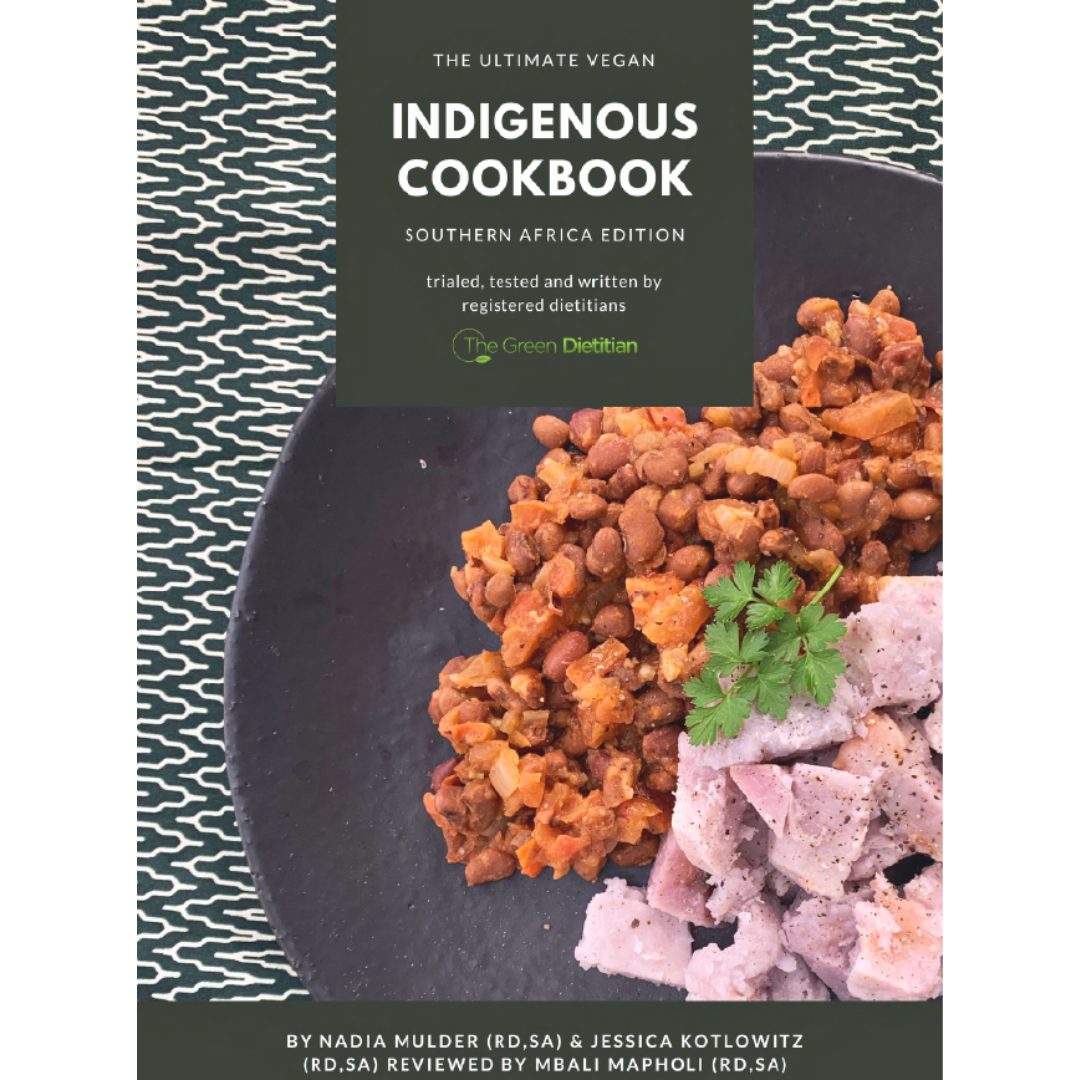
What if we told you that the roots of veganism run deep in the soil of Africa, where long-established dishes have been plant-based for generations?
Sometimes seen as a lifestyle choice predominantly associated with certain groups, veganism has transcended those boundaries and as we approach the annual celebration of World Vegan Day on November 1st, we find ourselves reflecting on the incredible journey of veganism. It’s a movement that has evolved and expanded, proving that it knows no boundaries, cultural or economic; and it’s not just a lifestyle choice, but a testament to our commitment to a healthier planet and a brighter future for all…
Chef Cola: A Mission to Make Veganism Accessible
Let’s introduce you to Nicola Kagoro, also known as Chef Cola, a woman on a mission to make the vegan lifestyle more accessible in Africa. In 2016, she founded “African Vegan on a Budget,” inspired by her growth in the culinary industry and her mission to inspire people to follow healthy vegan and plant-based diets without breaking the bank.

Chef Cola’s mission is not just about food; it’s about culture and heritage. She believes that veganism is part of African culture and heritage and told Takudzwa Nyambi in a GQ South Africa interview: “I believe veganism originated in Africa and it is through colonial practices that we learnt these unhealthy meat-eating practices. I am not saying my African ancestors did not eat meat but they did not consume in large amounts nor slaughter animals daily.”
Preserving Plant-Based Traditions in Africa
In some parts of Africa, plant-based diets persist, like in rural Zimbabwe, where some individuals still follow plant-based diets. However, a challenge endures; some feel ashamed of this way of eating, wrongly equating meat consumption with wealth. They consume plant-based foods, such as soy chunks, but label them as meat.
Chef Cola’s mission is about connecting with our heritage, celebrating our culture, and reclaiming the vegan roots that have been overshadowed by the commercialization of food. It’s a reminder that we have a legacy of plant-based eating waiting to be rediscovered…
Veganism isn’t just for certain groups or the financially privileged; it’s for everyone and embracing it doesn’t mean leaving behind traditional flavours and dishes. In fact, it’s an opportunity to explore the rich tapestry of indigenous African cuisine…

The Indigenous Cookbook: A Culinary Journey Through Africa
For this year’s World Vegan Day celebration, we want to shed light on the incredible work of The Green Dietitian. They’ve released a groundbreaking e-cookbook titled “Indigenous Cookbook – Southern Africa Edition.” This culinary masterpiece, authored by Registered Dietitians Jessica Kotlowitz and Nadia Mulder, invites us on a delectable journey through the heart of Africa and we’ve got a discount code for you!
Introducing us to the wealth of indigenous African foods that have been enjoyed for generations, it’s a celebration of flavours, traditions and heritage. This cookbook is a testament to the fact that these foods are not inferior to any other cuisine; they are just as deserving of respect and reverence, with each dish telling a story that connects us to our past.
Championing Indigenous Foods for a Better Tomorrow
Why should we champion local indigenous cuisine? The answer is simple: it holds the potential to reduce food and nutrition insecurity, especially for those in resource-poor households across sub-Saharan Africa. The Southern African ecosystem hosts over 200 edible plant species, with 103 being actively consumed. However, as large-scale commercial farming takes over, the knowledge of these indigenous foods is at risk of being lost.
Embracing Indigenous Foods for Health and Sustainability
In 2017, Jessica was contacted by the IAPF (International Anti-Poaching Foundation) to develop a balanced plant-based menu for their all-female antipoaching rangers (known as Akashinga) in Zimbabwe. The IAPF aims to protect wilderness landscapes in Africa and restore endangered species. They follow a vegan diet as part of their conservation efforts.
The Green Dietitian’s journey with IAPF and exploring indigenous foods got her thinking about how as South Africans, we tend to forget about all of the incredible local cuisines which come from our very own continent.
In their cookbook, Jessica and Nadia emphasize the benefits of local indigenous foods, describing them as sustainable, drought-resistant and supportive of local economies. They also highlight their accessibility, affordability and the fact that they are nutritional powerhouses, rich in phytochemicals linked to disease prevention. The authors stressed that embracing indigenous foods contributes to improved dietary diversity, a key factor in mitigating disease risk.
To celebrate this year’s World Vegan Day, The Green Dietitian is offering our readers a 15% coupon code to purchase their e-book on thegreendietitian.co.za. This is your chance to embark on a culinary adventure and rediscover the diverse tastes of Africa. Enter the code “shopzero15” at checkout to enjoy your discount.
Remember, veganism isn’t merely a modern trend or a choice reserved for the privileged. It’s a celebration of our heritage and a reconnection with our roots. It’s a movement for everyone, and the table is set for all to enjoy.

The Wider Impact of Veganism
In the realm of nutrition, we have reassuring statements from both the American Dietetic Association and the British Dietetic Association, affirming that a vegan diet is nutritionally complete and safe for all life stages, including pregnancy. With some thoughtful planning, we can effortlessly source protein, iron, calcium, and every other nutrient typically associated with animal-based products while positively contributing to environmental well-being. Learn more about key nutrients for vegans here and remember our Shop Zero™ store stocks high-quality staples which are rich in these key nutrients (and more) and we ship them to your door plastic-free!
Also, if you need help with your vegan diet journey, we can highly recommend consulting with local registered dietitian, The Green Dietitian.
Veganism and the Environment
Veganism isn’t confined to our plates; it extends to our planet’s welfare. Environmental concerns weigh heavily in the growing popularity of plant-based diets. Opting for a vegan lifestyle is one of the most potent choices we can make to reduce our environmental footprint. Mass production and consumption of meat and animal products bear a significant burden on climate change, pollution, deforestation, soil degradation, water scarcity and species extinction.
Understanding that our dietary choices have a profound impact on our world today and the legacy we bequeath to future generations is a compelling catalyst for embracing plant-based foods. Whether it’s witnessing the realities of slaughterhouses through undercover footage or delving into the research of Dr. Michael Greger, published in peer-reviewed scientific medical journals, we are driven by an undeniable need for change.
Collectively, we possess the power to bring about change, starting with a reconsideration of what we put on our plates. History is replete with instances where progress was achieved when individuals representing the minority spoke out against injustices. It’s our duty to follow suit, working to save animals, protect the environment, and, ultimately, secure our own well-being.
This World Vegan Day, let’s journey back to our roots and embrace the myriad flavours of indigenous African cuisine. Let’s celebrate the legacy of veganism ingrained in our culture. It’s a movement open to all and inviting everyone to the table, where the flavours of indigenous African cuisine await.
